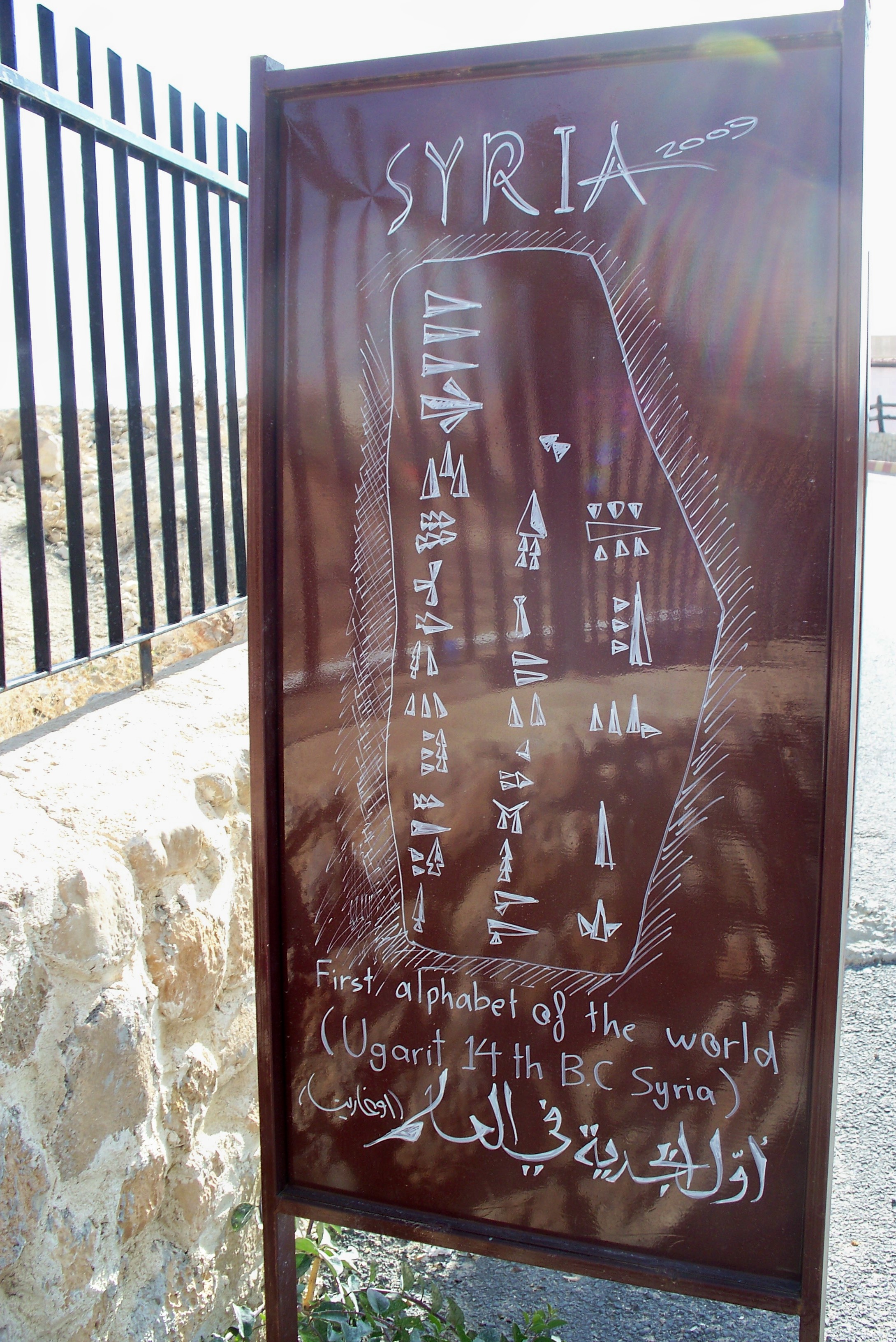4 April 2015
I carry no weapon but my wits, but a rapier thrust of well-timed words can cut through a whole lot of nonsense. Finding a way to put that on the page, and enter the 5,000 year flow of human writing—pathway to history, to sciences, to shared spirituality and the wisdom of the ages—feels like partaking of a sacrament. Writers are the scribes of eternity. The visionaries of the within.
The outward shape of these insights matters as well. In Syria a few years ago, we encountered proud signs, written mostly in hieroglyphs, which said at the bottom “First alphabet of the world, Syria, 14th century B.C.” In Bali, decades ago, we visited a Bali Aga village (these were the inhabitants of the old culture of the island, before the court and the artisans fled there from Java) where we were shown precious hand-carved books written in the ancient script, and still telling the creation story, and the cosmology of the Bali Aga people. Whether it’s the Chinese writing on the back of tortoise shells, or medieval monks scratching out a visual feast of Biblical passages in elaborate fanciful script, the artifact itself is part of the process.

In Tenganan, the best-preserved Bali Aga village, a scribe writes the ancient lontar script in a traditional book of banana leaves.
Maybe Carl Sagan said it best (he often did): “A book is made from a tree. It is an assemblage of flat, flexible parts (still called “leaves”) imprinted with dark pigmented squiggles. One glance at it and you hear the voice of another person, perhaps someone dead for thousands of years. Across the millenia, the author is speaking, clearly and silently, inside your head, directly to you. Writing is perhaps the greatest of human inventions, binding together people, citizens of distant epochs, who never knew one another. Books break the shackles of times—proof that humans can work magic.”
” . . . the greatest of human inventions,” he says, and who am I to quibble? My own library is far from Borgesian (Jorge Luis Borges has written about libraries that contain all books from all time, cataloged endlessly by pedantic librarians intent on achieving a perfection of order), but each volume holds memories. Memories not only of the words inside, but of the feel of the pages, the design of the cover, the heft in the hand. It is a unit, in and of itself. No batteries to wear out. No electrical outlet required. No monthly fees to retain service.
One of the very earliest delights of my life was opening a book. The words inside were few and, for a time, needed another human to interpret them. But soon I saw how that trick worked! I knew then that I had found a faithful companion, an interpreter of life and lives, for the rest of my natural days. Each day as I board the bus and flip open my latest tome, ready to disappear into another set of circumstances, I sigh inwardly with satisfaction. The voices within the book are rumbling. The outside world has already begun to disappear.

